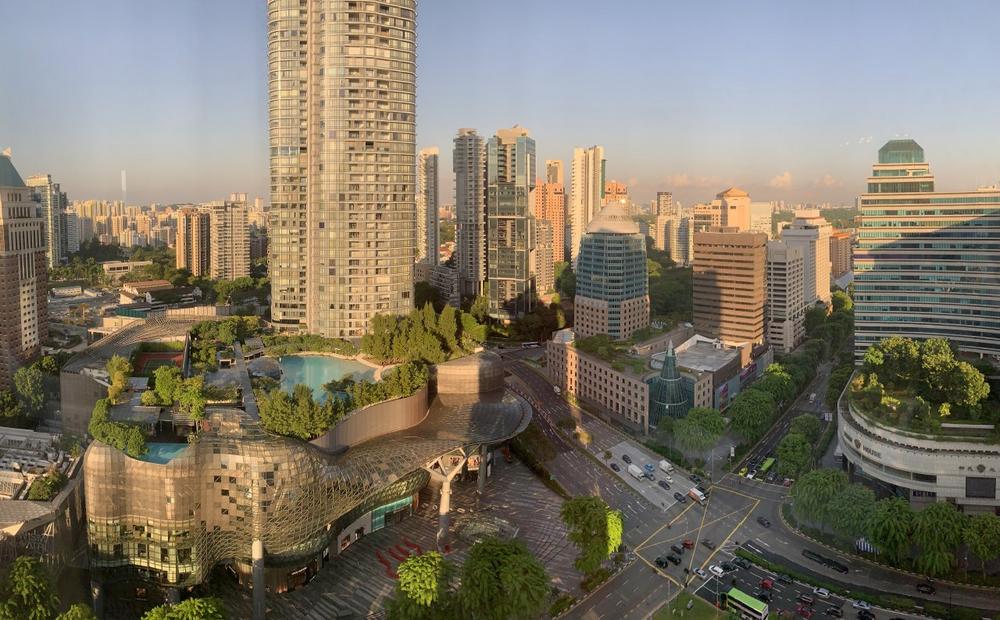Isn’t it just astonishing how quickly things can change? Suddenly, the birds could be heard again, where stinking metal convoys once moved through the streets. People were able to cross the road easily – with the appropriate social distancing, of course – and they experienced urban greenery as a source of physical and mental well-being.
Somehow, coronavirus achieved overnight what the politicians, planners and environmentalists were unable to do for decades. And, where do we go from here?
It is often said that we should not go back to the way things were, all over the world, but that we should use this opportunity to adopt a more sustainable lifestyle. For example, climatologist Joachim Schellnhuber speaks of his “climate corona contract” and demands reverse solidarity from older people with the younger generation as it is the latter who will experience the impact of climate change to a greater extent during their lifetime. Unlike the coronavirus, the climate crisis is not directly life-threatening for humans, but its impact is all the more dramatic and irreversible.
The impact of the coronavirus pandemic was and continues to be felt. During the period of drastic restrictions on leaving the house, for example, many people came to value their living space once again and particularly to appreciate their balcony, roof garden and garden. Green spaces and parks visibly came to life thanks to pedestrians and cyclists. The shutdown, especially, highlighted the fact that we need to be in a relationship with nature in order to maintain our own physical, social and mental health. This is the “biophilia” effect – the love of nature and of all living creatures. Diverse greenery, in addition, is good for biodiversity, reduces noise, air and water pollution, mitigates the effects of extreme weather events and offers protection from flooding, droughts and heat waves.
Urban development in transition
Innovative designers, planners and architects are already introducing a paradigm shift and using sustainable urban development, ecological buildings and blue-green infrastructures more than ever before.
The crisis has provided food for thought. The city of Singapore, for example, has introduced programmes with an interdisciplinary approach where health experts and urban planners are collaborating more closely towards achieving “healthy cities in a post-pandemic world”.
The mayor of Paris, Anne Hidalgo, talks of a “15-minute city” where the residents can make their daily journey on foot, by bike or on public transport. The world of work has now seen that working from home and video conferences have shortened travel or made it superfluous. And, changed mobility behaviour influences the infrastructure required in towns and cities.
At European level, new programmes, standards and financing models are being prepared. In this way, the new European platform for urban greening will simplify tree planting, as part of the LIFE programme too.
Towns with more than 20,000 inhabitants are requested to prepare ambitious plans for greening by the end of 2021. This includes measures to create biologically diverse urban forests, parks and gardens, urban farms, green roofs and walls, avenues, urban meadows and hedgerows. These plans also include prohibiting the use of pesticide and practices that damage biological diversity – such as excessive mowing.
These plans for urban greening will play a key role in the award of the titles “European Green Capital 2023” and “European Green Leaf” 2022.
A new opportunity
For all the suffering, the corona pandemic brought some good in that the willingness of society to change is greatest in times of crisis.
We now need to contain climate change and create a viable and resilient urban landscape architecture. Healthy eco-systems have to be systematically integrated into urban planning: when designing public spaces, planning buildings and in their contextual healthy embedding in the environment.
We need to seize this opportunity to change our values, prioritising a healthier environment especially in urban settings and, therefore, achieving societal benefits, for the health of our people and for increased hope for future generations.
Herbert Dreiseitl
Hofstatt 2-4
88662 Überlingen
Herbert Dreiseitl is respected around the world for his expert and pioneering work as a landscape architect, urban planner and academic. He has been working for over three decades now in the area of liveable urban development, focusing on innovative, sustainable use and climate-adapted solutions, also in relation to urban water systems. In 1980, Dreiseitl set up the Atelier Dreiseitl (now Ramboll Studio Dreiseitl) in Überlingen and these days he is involved at international level in design and consultancy through his own company DREISEITLconsulting GmbH.
Kompetenzzentrum Gebäudebegrünung und Stadtklima e.V.
Schelmenwasen 4, 72622 Nürtingen
Tel. +49 7022 7896534
E-Mail: info@kgs-nt.de
www.kgs-nt.de
As the result of climate change, increasing urban sealing and diminishing biodiversity, it is necessary to plant urban spaces more consistently. In order to exploit the diverse eco-system services of green areas at and on buildings and in areas around them, in an efficient and synergetic manner, a considerable level of research is still required to validate performance potential, and to strengthen acceptance and identification through specific usage research.
This research is carried out by the Kompetenzzentrum Gebäudebegrünung und Stadtklima e. V. (KGS).
In a collaborative approach involving universities, professional associations, companies and communities, lectures are given and topics are addressed via a digital platform relating to building greening and urban climate, within the framework of research and transfer projects.
Die ZinCo GmbH bietet ausgereifte und dauerhaft sichere Systeme zur Dachbegrünung, zur Kombination der Dachbegrünung mit Solartechnik und Systeme zur Absturzsicherung.
ZinCo GmbH
Lise-Meitner-Str. 2
72622 Nürtingen
Telefon: +49 (7022) 6003-0
Telefax: +49 (7022) 6003-100
http://www.zinco-greenroof.com
Pressekontakt
Telefon: 0049 7022 7896534
E-Mail: info@kgs-nt.de
![]()
